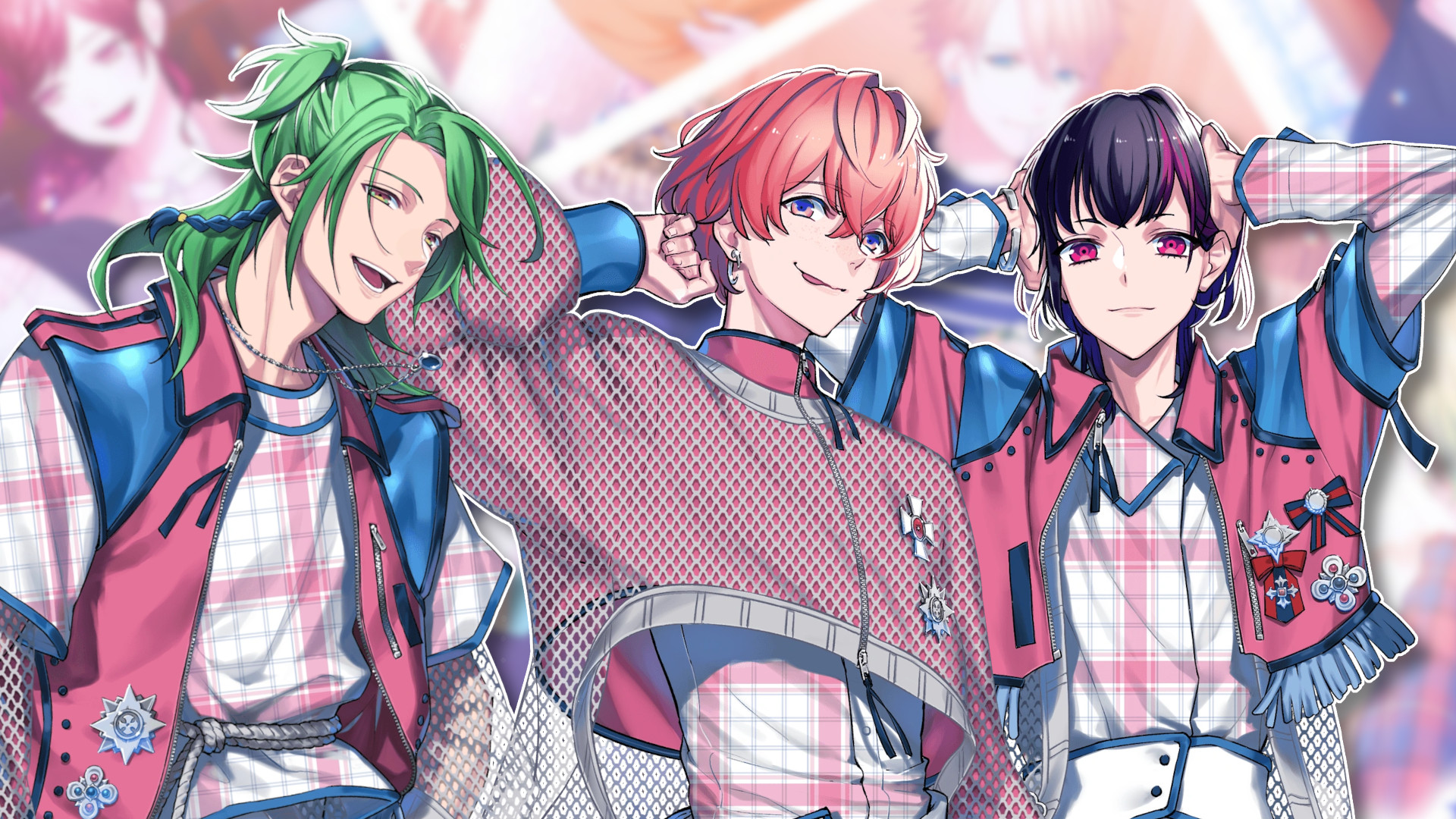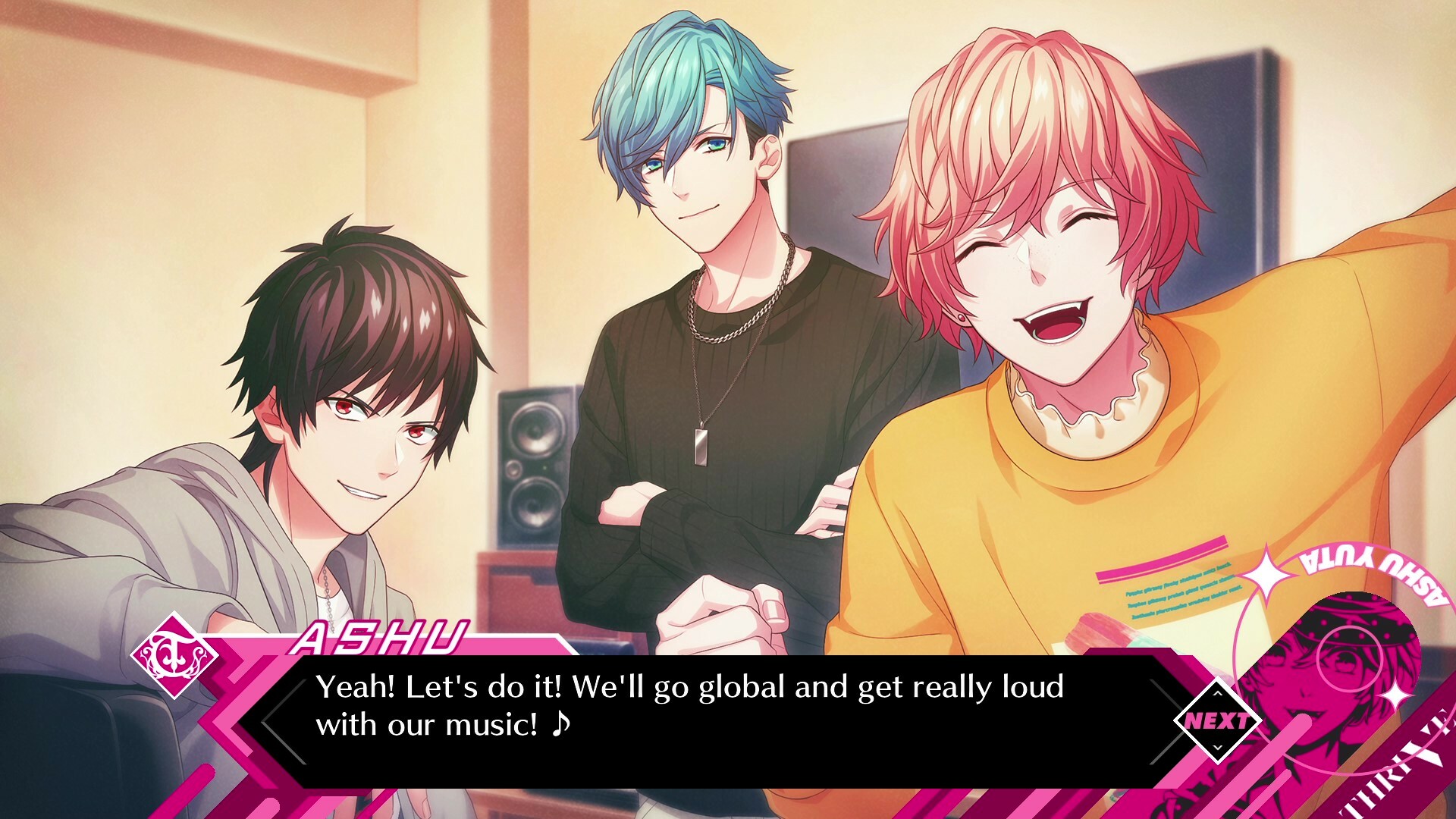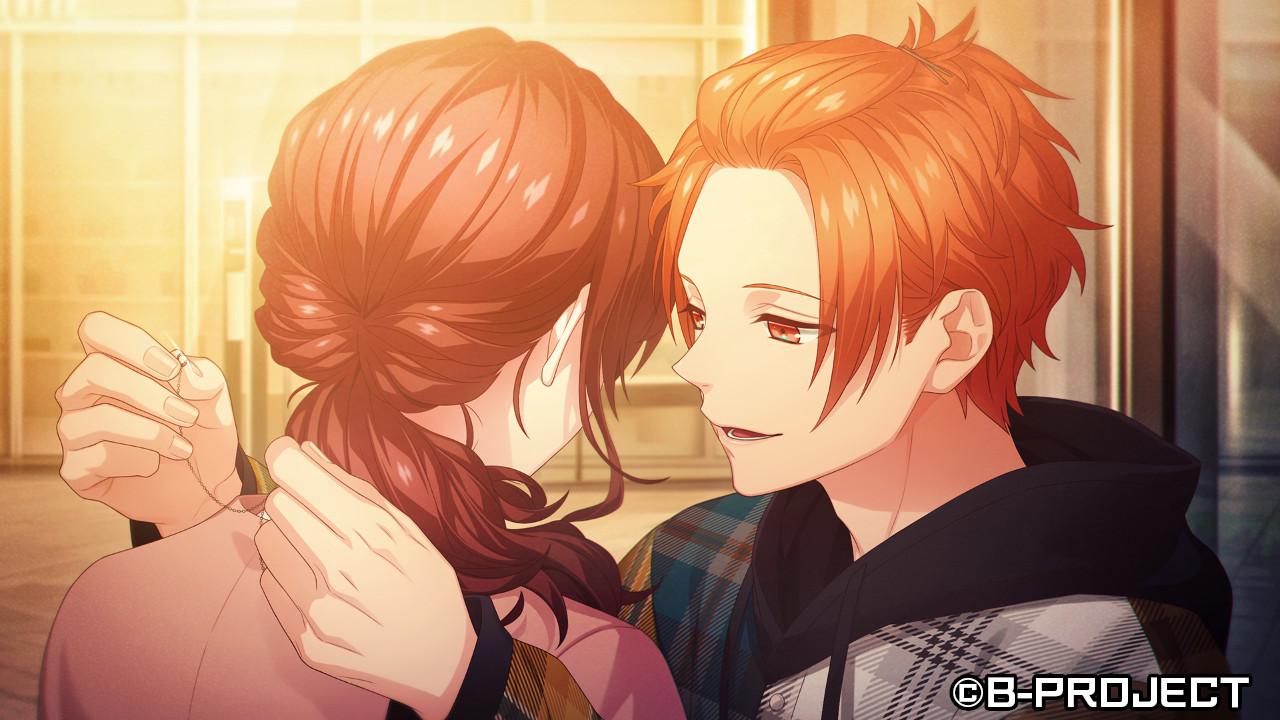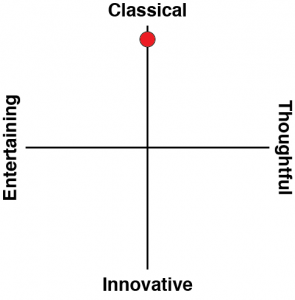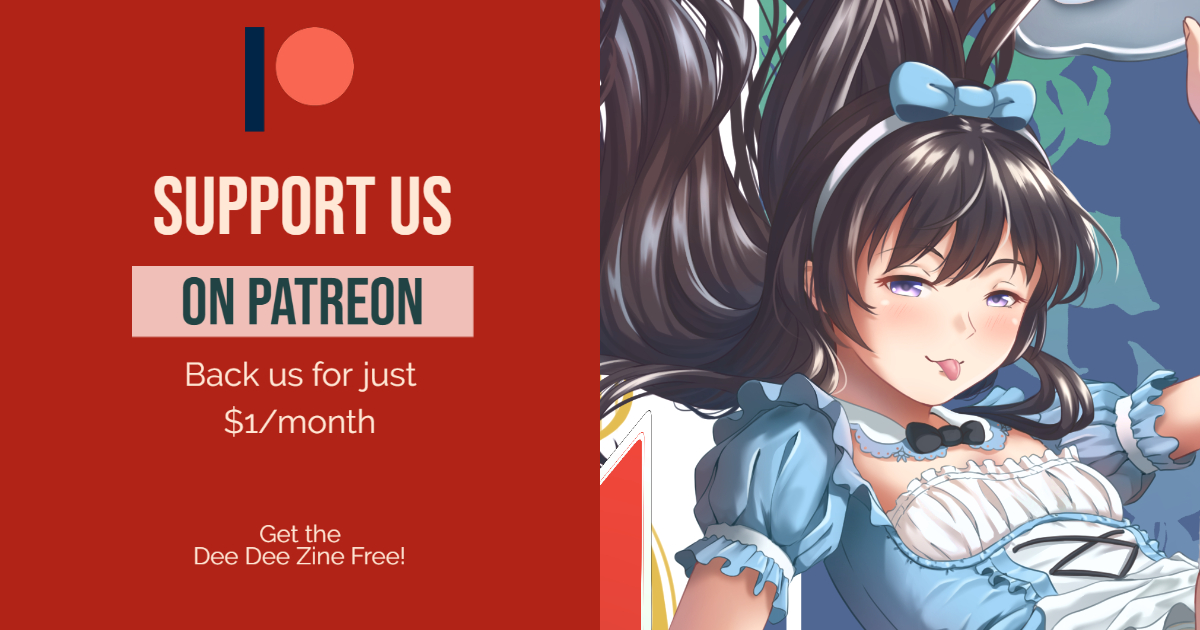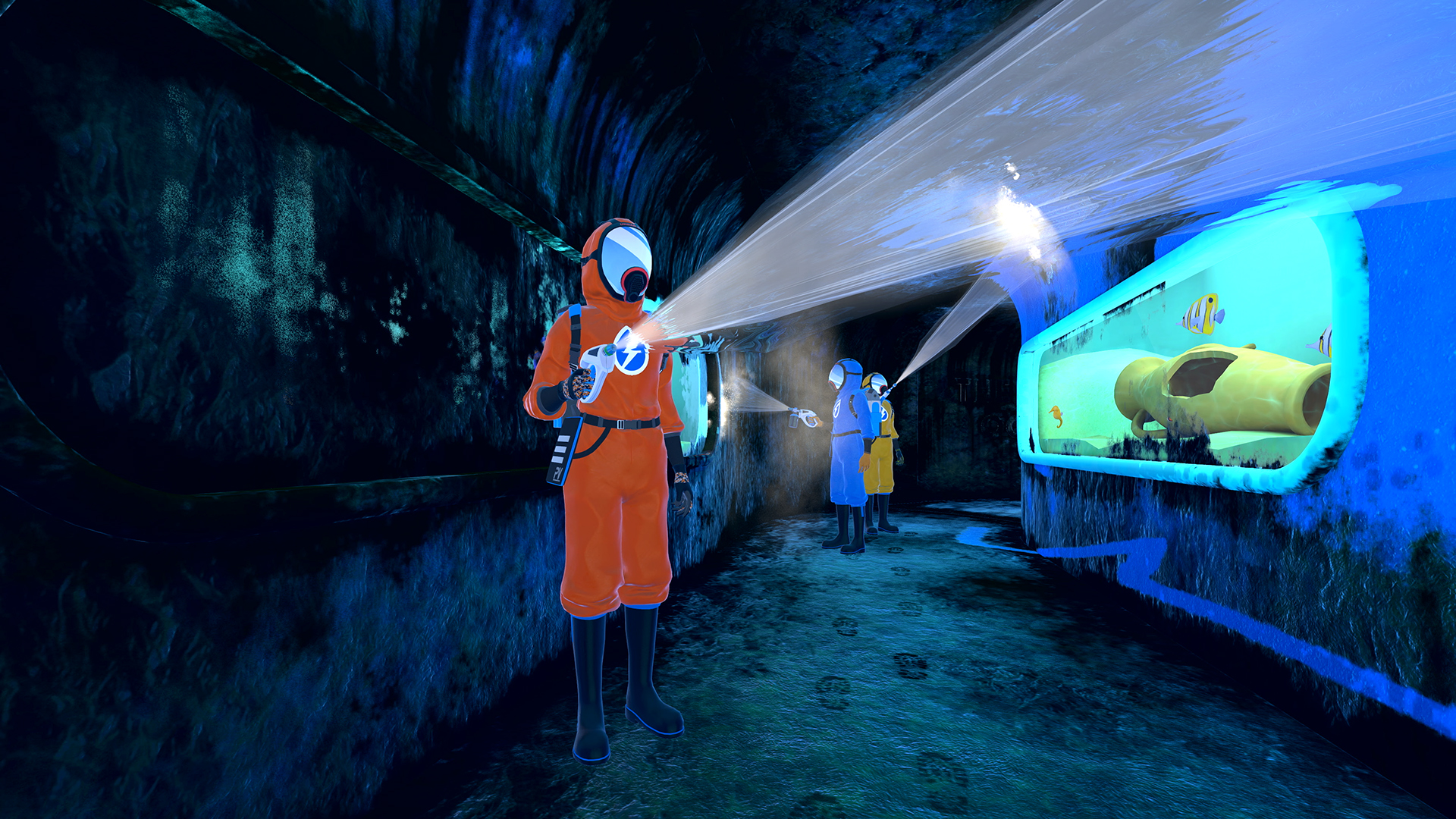It’s hard for us in the West to fully appreciate just how core idol companies and groups are in Japan. It’s not just about the music and performance, though that is certainly a big part of it. Idol groups act as talent feeder pools for just about every other part of the entertainment industry. Idols become the famous actors, television personalities, models and more all come from the idol industry, and so that industry is ingrained deeply into Japanese society and culture in a way that is very distinct from it being a “musical genre” or popular art form in itself. B-Project: Ryuusei*Fantasia is a visual novel that tracks the inner workings of the idol world.
Unfortunately, to fully enjoy B-Project, you do want to be aware of the broad cross-media project. B-Project started back in 2015, and has grown to include an anime series, manga adaptation, theatre plays, music CDs, and the standard bevy of merchandise that these projects tend to attract. If this game is your first experience of the property you’re going to struggle with it.
It’s not because the game doesn’t offer a cohesive story. It does do that, and there’s an extended section at the start that features plenty of flashbacks and reminiscing to help catch you up with the back story of the main protagonist (who acts as a manager to the various idols) and her history with the four groups that, combines, make-up B-Project. No, the problem with this one is that there are so many characters. There are 14 boys in total, and while the developers have done a good job of using coloured text boxes to help create a visual association between what they’re saying and their avatar on the screen, it is a lot to try and jump in and instantly get a sense of their characterisation.
In fact, B-Project: Ryuusei*Fantasia highlights in several ways why visual novels with really big casts are not a great idea, and that the “sweet spot” is closer to 7-8 for a big, “A-tier” entry in the genre. Not only is it difficult to connect with the characters early on when there are so many of them, but the general expectation of visual novels like this is that all characters get their equal time to shine. When it’s spread across 14 idols (and several other important characters outside of the groups), that need to distribute screen time tends to really drag the pacing down, and there are several moments where you’ll feel like entire conversations only happened because there was a need to give a character a scene.
Finally, for one other criticism of the game, the font in the text box often shifts size. Sometimes the font is nice and large, but for longer statements, sometimes the font is reduced in size significantly to make it fit. This is, of course, a consequence of localisation. Japanese characters take up less space, so longer phrases can be worked comfortably into a single text box. Splitting text up across multiple text boxes for the English localisation would have added significantly to the cost of localisation, as it would have involved additional development resources. Scaling the font size based on what needs to be squashed into one text box is the most efficient approach, though it does mean that when playing the game in handheld mode, it can be uncomfortably small to look at.
The rest of B-Project is lovely, though, as you’d expect from a visual novel developer as experienced as MAGES. Each of the boys is well drawn and animated to be distinct from the others, and the clever use of colour to associate with each helps distinguish them further. Backgrounds are efficient but pleasant and consistent, and the key art CGs that are scattered throughout do exactly the job that you’d expect them to.
However, none of this is really relevant to whether you’re going to like the game or not. B-Project’s success really comes down to how much you can enjoy idol culture. Not so much idol music or performance, since there’s not so much of that displayed in the game. But rather whether you get a kick out of the behind-the-scenes work that goes into manufacturing this very specific kind of entertainment product.
It is interesting in an objective sense, especially since the game overlooks the darker side of the industry (fans know what I mean). There’s a strange melding of business creativity and entertainment creativity that is fundamentally unique in the idol world compared to other forms of music, and while B-Project might not be the most authentic take on it (for that there’s something like Idol Manager), it does make for some fun drama.
I can’t help but feel that B-Project: Ryuusei*Fantasia would have benefitted from an approach more like Jack Jeanne, with its “Princess Maker”-like daily management of activities to train the group, but as a straight-up visual novel, this checks all the boxes with colour and panache. It’s a good addition to the B-Project project by Mages, and good on PQube for localising something with as narrow interest in the West as this.
